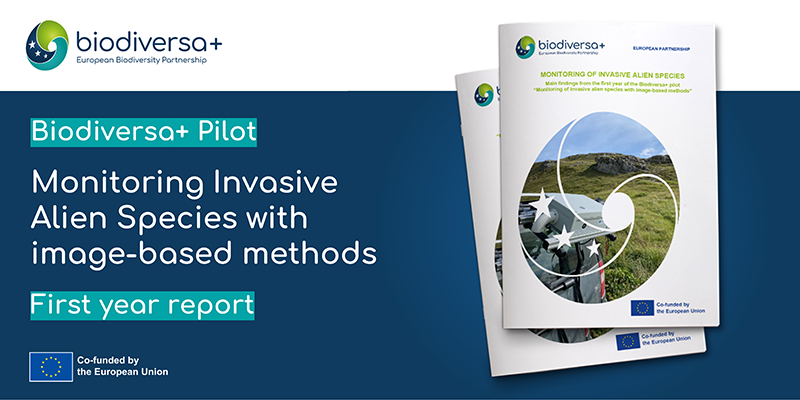Invasive alien species are one of the top five drivers of biodiversity loss worldwide. To prevent the future introduction and spread of these species, we need to improve cooperation across Europe.
To support this goal, Biodiversa+ has prioritised “Invasive Alien Species” and launched a two-year pilot study in January 2023 as a proof of concept for creating a transnational network of biodiversity monitoring schemes.
The pilot consists of two modules: one for plants and one for insects (mainly moths). Both modules employ image recognition using computer vision and deep learning models for cost-effective and rapid detection of species of concern. The plant module is testing a car-mounted camera system (CamAlien) to map invasive alien plant species along roads, while the insect module is testing insect camera traps (AMI traps) to monitor invasive alien moth species attracted by light.
The mid-term report describes the implementation steps taken, including a description of the equipment, taxonomic focus, site selection, data collection and image analysis. It also summarises the data management practices of the project and gives an overview of the first results, lessons learned, and perspectives for implementation in long-term transnational monitoring.
The pilot is a cooperation with Pl@ntNet and EASIN. It is coordinated by the Danish Ministry of the Environment through Aarhus University, and involves partners from ten countries: Bulgaria, Czech Republic, Croatia, Denmark, France, Israel, Italy (Autonomous Province of Bolzano), Portugal (Azores), Slovakia, and Sweden. Belgium joined the group at the beginning of 2024.




